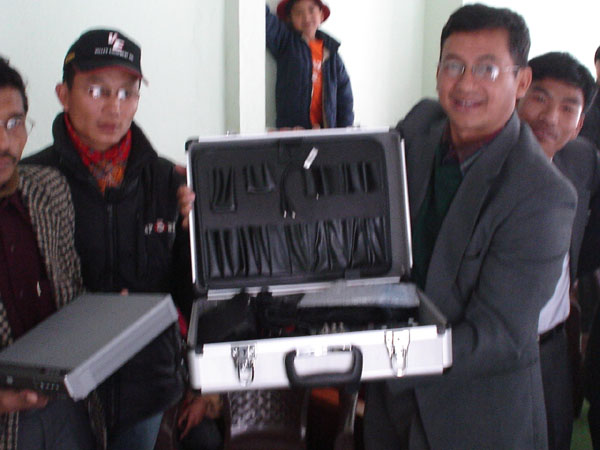LESSON 4
“I speak as to wise men; judge ye what I say. 16The cup of blessing which we bless, is it not the communion of the blood of Christ? The bread which we break, is it not the communion of the body of Christ? 17For we being many are one bread, and one body: for we are all partakers of that one bread. 18Behold Israel after the flesh: are not they which eat of the sacrifices partakers of the altar?” (1 Corinthians 10:15-18)
1. I really like what we call the communion table or the last supper. Did you know the setting of the communion table is always set in strife, confusion, and ambition?
2. The day before Jesus entered Jerusalem (for His crowning moments, His death and resurrection of His ministry) to observe the Passover feast with the disciples a dispute over who would be the greatest (also in Matthew 18:1 and Mark 9:34) in the kingdom and who would sit on Jesus’ right hand arose, “And they were all amazed at the mighty power of God. But while they wondered every one at all things which Jesus did, he said unto his disciples, 44Let these sayings sink down into your ears: for the Son of man shall be delivered into the hands of men. 45But they understood not this saying, and it was hid from them, that they perceived it not: and they feared to ask him of that saying. 46Then there arose a reasoning among them, which of them should be greatest.” (Luke 9:43-46)
3. We have already discussed the spiritual heart condition of the Body of Christ at Corinth, but in 1 Corinthians 11:17-34, Paul uses the communion table to bring peace, correction, and reconciliation. Paul kept talking about doing this in the remembrance of Christ or the remembering. Now I was not there but, but I think Paul selected His words particularly, because we must remember he was not at the original Lord’s supper with the other disciples. I believe Paul was talking about remembering the precious work Christ did on the cross for us and for us not to treat as not sacred, but at the same time the Holy Spirit was doing a work in hearts and lives of the people, a “re-membering” of the Body of Christ gathered. A bringing together again from the strife and division that was painfully present, as Jesus used the Passover feast to bring correction and peace to then disciples.
4. I do not believe Jesus was instituting a tradition, custom, or ordinance (what we call the Communion Table) to observe every time we gather, weekly, monthly or whenever. But, He was doing something greater. As the disciples (and us) part took of His flesh (bread) and blood (wine) they were taking into themselves the life of God and as they part took they were remembered back to Christ and His Body.
5. The communion table and remembering of the Body is spread for three reasons: to endure persecution, under go correction, and be reconciled to God and man.
6. Polycarp was Bishop of Smyrna (today known as Izmir), a city on the west coast of Turkey. The letters to the “seven Churches in Asia” at the beginning of the Book of Revelation include a letter to the Church in Smyrna, identifying it as a Church undergoing persecution.
7. Polycarp is said to have known the Apostle John, and to have been instructed by him personally in the Christian faith. Polycarp was denounced to the government, arrested, and tried on the charge of being a Christian. When the proconsul urged him to save his life by cursing Christ, he replied: “Eighty-six years I have served him, and he never did me any wrong. How can I blaspheme my King who saved me?” The magistrate was reluctant to kill a gentle old man, but he had no choice.
8. Polycarp was sentenced to be burned to death. As he waited for the fire to be lighted, he prayed:
“Lord God Almighty, Father of your blessed and beloved child Jesus Christ, through whom we have received knowledge of you, God of angels and hosts and all creation, and of the whole race of the upright who live in your presence: I bless you that you have thought me worthy of this day and hour, to be numbered among the martyrs and share in the cup of Christ, for resurrection to eternal life, for soul and body in the incorruptibility of the Holy Spirit. Among them may I be accepted before you today, as a rich and acceptable sacrifice, just as you, the faithful and true God, have prepared and foreshown and brought about. For this reason and for all things I praise you, I bless you, I glorify you, through the eternal heavenly high priest Jesus Christ, your beloved child, through whom be glory to you, with him and the Holy Spirit, now and for the ages to come. Amen.”
9. Suddenly, a voice from heaven rang out, “Polycarp be strong..” The fire was then lit, but as the flames reached Polycarp they swirled around him, near a flame touching him. Shortly thereafter a soldier stabbed him, by order of the magistrate, but as his blood ran out of his body it distinguished the flames, and he died. His friends gave his remains a honorable burial, and wrote an account of his death to other churches.
10. Make no mistake my friend the communion table is set in sacrifice. The greater the communion the greater the sacrifice required of us and please know God gets to pick the sacrifice.
11.. Like persecution, communion and correction goes hand in hand. As the Lord was saying, “And when he had given thanks, he brake it, and said, Take, eat: this is my body, which is broken for you: this do in remembrance of me.” (1 Corinthians 11:24) the disciple did not understand what He was saying to them about communion. They were not feeding upon Him, they were feeding upon heir own ambition and desires.
12. During this solemn feast they debated among themselves who would be the greatest. They went out, not for the better but for the worse. They were weak and sick and that weakness was reflected in many ways. It was seen in Peter and others when they boasted they would die for the Lord.
13. We too, like the Corinthians and disciples before them can miss the life God has for us to share with others by our neglecting communion with times of correction. We too come through the doors of the building bringing attitudes and sin that would have been corrected if we truly would have supped with the Lord. Our lack of feeding on Him causes the feast to be contaminated with the leaven of malice and wickedness.
14. We must realize and not be the one person who brings such into the communion service because of our waywardness, “A little leaven leaveneth the whole lump.” (Galatians 5:9) instead, “Therefore let us keep the feast, not with old leaven, neither with the leaven of malice and wickedness; but with the unleavened bread of sincerity and truth.” (1 Corinthians 5:8)
15. Personal correction by the Lord and communion with the Lord is to be the basis of the communion of the saints. Each individual must examine themselves to see if there are ungodly things present in their heart. Each individual must feed on the Lord so that they can be filled with sincerity and truth.
16. Correction is the beginning of communion with God and the saints. True communion is a feast of the life of God passing from one saint to another resulting in the increase of the Body. The Spirit of God then can flow from one to the other blessing, enriching, and strengthening the Body collectively. Then we can go out from the meetings we have come together for the better. Some give, others receive, some feed, others eat, some bless, others are blessed, but all are increased in God.




